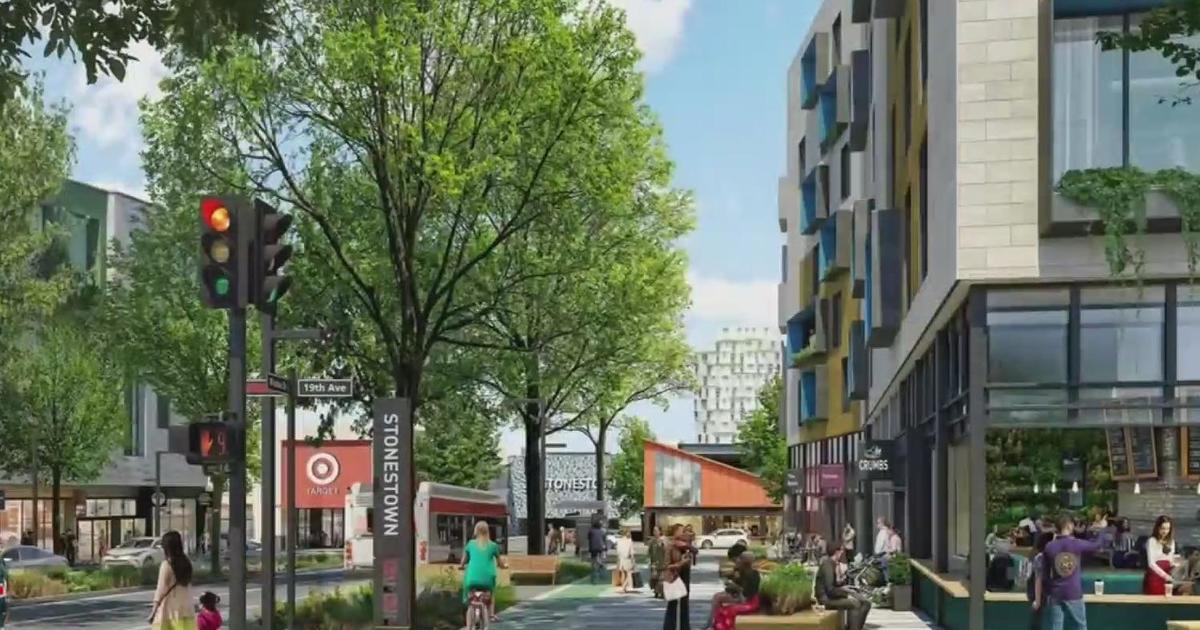The Politics Of Housing: Critics Say Prop E Does The Opposite Of What It Advertises
by Susie Steimle and Wilson Walker
SAN FRANCISCO (KPIX 5) -- If you ask anyone if San Francisco needs more affordable housing, you'll get the same answer no matter who you ask: a resounding yes. But solutions have been far more difficult to agree upon. Proposition E is a perfect example of how political local housing measures have become.
If it passes, Prop E will transform the way San Francisco builds. Going forward, it will tie the amount of office space companies can build to how well the city does hitting its affordable housing goals. If enough affordable housing isn't created, new office buildings won't be, either.
"So either we build affordable faster or we'll build office slower," Jon Jacobo said.
Jacobo is the Director of Policy for TODCO, an affordable housing developer and sponsor of Prop E. He is optimistic that Prop E will bring balance back to the city.
"If we don't change the paradigm and prioritize affordable housing, we're going to continue on the exact same track that we've been on," Jacobo said.
The big problem, as critics and the city's Chief Economist point out, is that San Francisco never meets its affordable housing goals.
In the past decade San Francisco came up short, building only 35% of the affordable housing it was required to by the state. If this trend continues and Prop E passes, the city could have 10.6 million fewer square feet of office space in 20 years.
The city's Chief Economist determined this will have a negative financial impact and will lead to fewer jobs, higher office rents, reduced income and employment.
"Prop E is going to take away one of the main funding sources that we have to build new affordable housing, which is the fees that office developers pay," Nick Josefowitz, Policy Director at SPUR said. SPUR is opposing Prop E.
Josefowitz points out that less office space means less city revenue, and less money that goes to help build affordable housing, but supporters say the status quo simply can't continue.
"But until we have this unfortunate carrot and stick, folks are not going to act. And some will say, yes, they will, but I will point to history and say, no, they haven't," Jacobo countered.
"This may sound like a good idea, but the unintended consequence is this is going to significantly reduce the amount of affordable housing that we can build and it's going to drive office rents even further up," Josefowitz said.
For voters, it comes down to who you trust and whether you're an optimist or a realist, which can be confusing, especially when critics argue that Prop E might end up doing the opposite of what it advertises.
But as divided as the two sides may be on this proposition, there's one thing the two sides might agree on: Prop E is just a symptom of a much larger problem.
"I mean, this is definitely not something where we have people that are totally for housing and totally against it," said Sonja Trauss, co-founder of the YIMBY (Yes In My Backyard) Party. "It's that literally every single person is both for and against housing."
But Jacobo puts it another way. "The secret of San Francisco is that no one wants it to change from the day they move here," he said.
While Prop E targets office space, the root of the problem is still a lack of housing and the inability to create much more of it, a problem not limited to San Francisco.
"I would hope that the rest of the nine Bay Area counties would look at something similar," Jacobo says of the effort to match office space creation with housing development.
Trauss explains that it's absolutely a regional issue. "And that's one of the complaints about this particular ballot measure, is that it just pushes the food around on the plate. It pushes the problem around."
Therein lies the complexity of achieving a jobs-housing balance: the imbalance does not respect city limits or county lines. With no real regional strategy for addressing that, the result is local ballot measures, all over the region, tinkering with that much larger problem.
"It's not a one dimensional solution, because it's not a one-dimensional problem," Jacobo says of the region's housing shortage. "And so you see different ballot measures trying to take different bites at the apple, if you will."
So the housing challenge continues to be fought at the local level, county, city, sometimes block to block.
"And people are willing to make the perfect, the enemy of the good," Trauss says. "You go to these community meetings and people are like, 'Oh, I want housing, but I want it to be a certain way. And if it can't be that way, and the only option is no housing, that's fine with me.' That's an anti-housing position."
"Yeah, and I would look straight at the top if I could," Jacobo says. "If I had a magic wand, we would start at the federal level."
And the issue is going to require federal help. Paul Boden, a San Francisco homeless advocate, told KPIX that the Bay Area's housing and homelessness issues are simply too large to be tackled at the local level.



